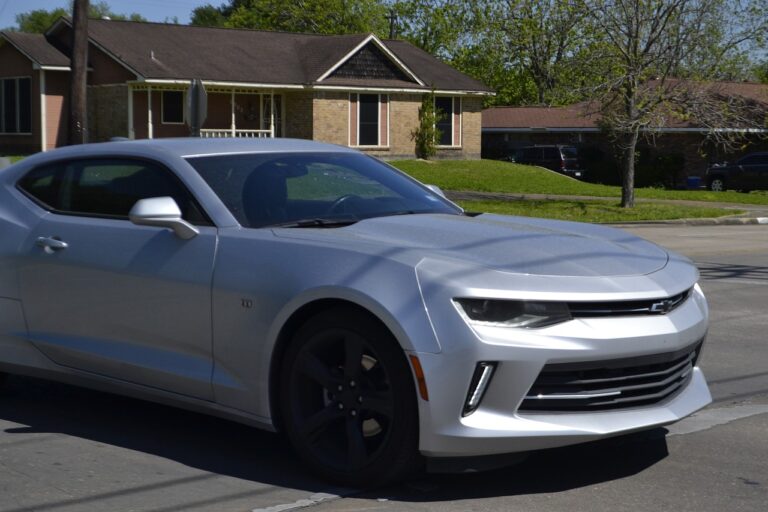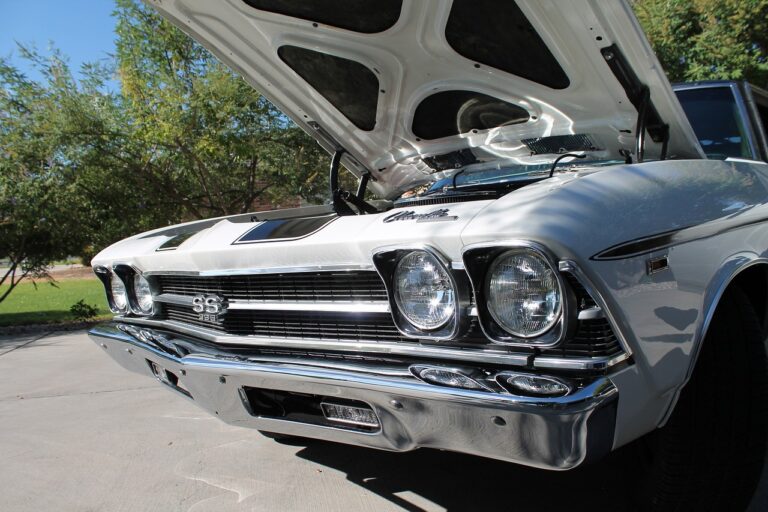Analyzing the Role of Automotive Glass in Vehicle Fuel Efficiency Optimization
betbook250.com, 11xplay, yolo 247:Fuel efficiency is a crucial factor in the automotive industry, with manufacturers constantly seeking ways to optimize their vehicles to reduce fuel consumption and emissions. One often-overlooked element in this optimization process is automotive glass. The glass not only plays a vital role in the overall aesthetics and structural integrity of a vehicle but also affects its fuel efficiency.
In this article, we will delve into the significance of automotive glass in optimizing vehicle fuel efficiency, exploring how advancements in glass technology can contribute to reducing fuel consumption and improving overall performance.
The Role of Automotive Glass in Vehicle Fuel Efficiency Optimization
1. Weight Reduction: One of the primary ways automotive glass can impact fuel efficiency is through weight reduction. Traditional glass used in vehicles is heavier, and heavier vehicles require more energy to move, thus consuming more fuel. By using lightweight materials such as thin and tempered glass, manufacturers can significantly reduce the overall weight of the vehicle, leading to improved fuel efficiency.
2. Aerodynamics: The design and shape of automotive glass also play a crucial role in the aerodynamics of a vehicle. Poorly designed glass can create drag, increasing resistance and causing the engine to work harder, consuming more fuel. By utilizing curved and streamlined glass designs, manufacturers can reduce drag and optimize airflow around the vehicle, ultimately improving fuel efficiency.
3. Solar Control: Automotive glass with advanced solar control properties can help regulate interior temperature, reducing the need for air conditioning and improving fuel efficiency. By blocking harmful UV rays and reducing heat buildup inside the vehicle, solar control glass can lessen the strain on the air conditioning system, resulting in lower fuel consumption.
4. Insulation: Improved insulation provided by automotive glass can also contribute to fuel efficiency optimization. Insulated glass helps retain heat in the winter and cool air in the summer, reducing the reliance on heating and cooling systems. By maintaining a comfortable interior temperature without excessive energy consumption, insulated glass can enhance overall fuel efficiency.
5. Safety and Durability: Automotive glass that meets stringent safety standards not only protects the vehicle’s occupants but also ensures structural integrity. In the event of a collision, high-quality glass can prevent roof collapse and maintain the vehicle’s overall shape, preserving aerodynamic efficiency. By enhancing safety and durability, automotive glass plays a critical role in optimizing fuel efficiency.
6. Noise Reduction: Soundproof automotive glass can also contribute to fuel efficiency optimization by reducing noise inside the vehicle. Excessive noise can cause driver fatigue, leading to decreased focus and efficiency. By using acoustic glass that minimizes external noise, manufacturers can create a more comfortable driving experience, improving driver alertness and overall fuel efficiency.
Advancements in Automotive Glass Technology
Over the years, advancements in automotive glass technology have revolutionized the way vehicles are designed and built. From lightweight materials to smart features, modern automotive glass offers a wide range of benefits that directly impact fuel efficiency.
1. Thin and Tempered Glass: Traditional glass used in vehicles is relatively thick and heavy, contributing to increased fuel consumption. Thin and tempered glass, on the other hand, is lighter and stronger, making it an ideal choice for fuel-efficient vehicles. By reducing the weight of the glass, manufacturers can improve overall fuel efficiency without compromising safety.
2. Laminated Glass: Laminated glass consists of two layers of glass bonded together with a layer of PVB (polyvinyl butyral) in between. This construction not only enhances safety by preventing shattering but also provides sound insulation and UV protection. By incorporating laminated glass into vehicles, manufacturers can improve fuel efficiency by reducing the need for additional insulation and UV-blocking materials.
3. Solar Control Glass: Solar control glass is designed to block harmful UV rays and reduce heat buildup inside the vehicle. By minimizing the temperature fluctuations, this type of glass reduces the strain on the air conditioning system, leading to improved fuel efficiency. Solar control glass also helps maintain a comfortable interior temperature, enhancing overall driver comfort and performance.
4. Smart Glass: Smart glass is a cutting-edge technology that allows for on-demand tinting and transparency adjustments. By using electrical currents to change the glass opacity, drivers can control the amount of light entering the vehicle, reducing glare and heat buildup. Smart glass not only enhances driving comfort but also contributes to fuel efficiency optimization by reducing the need for excessive air conditioning.
5. Hydrophobic Glass: Hydrophobic glass is treated with a special coating that repels water, dirt, and debris, keeping the surface clean and clear. This type of glass improves visibility in inclement weather conditions, reducing the reliance on windshield wipers and improving fuel efficiency. By maintaining a clear view of the road, drivers can react more quickly to changes in traffic, optimizing fuel consumption.
FAQs
Q: How does lightweight glass improve fuel efficiency?
A: Lightweight glass reduces the overall weight of the vehicle, requiring less energy to move and increasing fuel efficiency.
Q: What is solar control glass, and how does it impact fuel consumption?
A: Solar control glass blocks harmful UV rays and reduces heat buildup inside the vehicle, minimizing the strain on the air conditioning system and improving fuel efficiency.
Q: How can acoustic glass enhance fuel efficiency?
A: Acoustic glass reduces noise inside the vehicle, improving driver alertness and focus, leading to higher fuel efficiency.
Q: Why is smart glass beneficial for fuel efficiency optimization?
A: Smart glass allows for on-demand tinting and transparency adjustments, reducing glare and heat buildup, thus improving fuel efficiency.
In conclusion, automotive glass plays a significant role in optimizing vehicle fuel efficiency through weight reduction, aerodynamics, solar control, insulation, safety, and noise reduction. By leveraging advancements in glass technology, manufacturers can create vehicles that are not only fuel-efficient but also offer enhanced driving comfort and performance. As the automotive industry continues to evolve, the importance of automotive glass in fuel efficiency optimization cannot be understated.






